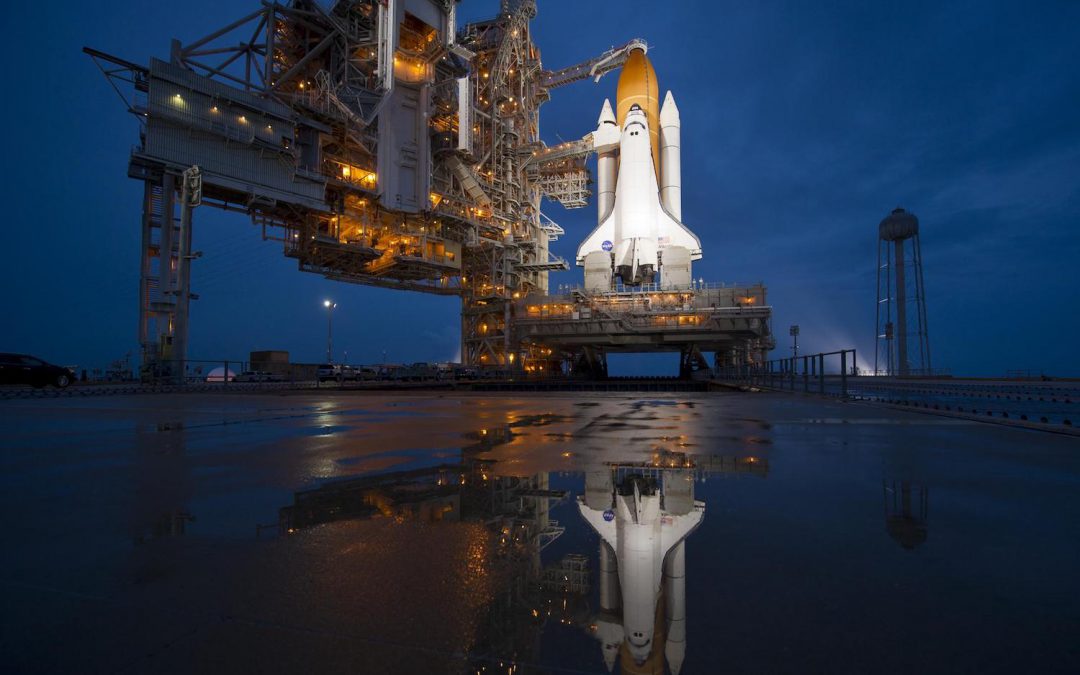WASHINGTON – The Trump administration is sending mixed signals about its intentions for space.
President Donald Trump’s budget would slash NASA funding dramatically. But last month he revived the long-dormant National Space Council.
Trump wants to cut NASA by $4.5 billion over the next four years, though he continues to claim his presidency “will once again make America first again” in space. Trump’s proposed NASA budget for fiscal year 2018, which begins October 1, is $19.1 billion – a 2.9 percent reduction from its present funding. It would force the agency to eliminate its Office of Education.
Given the consistent bipartisan support for NASA, it is likely that the agency will receive closer to its current $19.6 billion from Congress.
John Logsdon, a former NASA Advisory Council member, said in an email that he doesn’t think re-vitalizing the (Space) Council “sends a signal about science one way or the other.”
His colleague at the Space Policy Institute, Scott Pace, was recently announced as Trump’s appointee to head the National Space Council. Logsdon said reviving the council was not “cosmetic,” but that “the issue is whether Trump and (Vice President Mike) Pence will/can provide the political support needed.” The institute focuses on research and education around domestic and international space policies.
Congress will, and Sen. Richard Shelby, R-Ala., appropriations committee chairman, explained why.
“I believe we must have an accurate budget to reflect these launch decisions and to meet our nation’s exploration goals,” Shelby said. “For human exploration, the current administration picks up where the previous administration left off, by projecting a lofty vision for space while providing a budget that keeps that vision from leaving Earth.”
While Sandra Magnus, executive director of the American Institute of Aeronautics and Astronautics, said that scientists should take Trump’s interest in space as “a good sign,” she described herself as “cautiously optimistic” at a recent AIAA forum in Atlanta.
After Trump announced the revival of the National Space Council in late June, NASA’s official statement said the council would “ensure that all aspects of the nation’s space power — national security, commerce, international relations, exploration, and science, are coordinated and aligned.”
Magnus, a former astronaut and mission specialist with over 157 days in space, was blunt in opposing any attempt at combining national security and aerospace science.
“NASA’s role is civil and it needs to stay that way,” she said.
Rep. Brian Babin, R-Texas, chairman of the House space subcommittee and representative of the district home to the Johnson Space Center, echoed that position while noting that Congress doesn’t quite agree with Trump’s budget cuts to American science.
“We should continue to keep our civil and national security space programs separate,” Babin said, though he added: “As budgets shrink and costs rise, we should identify opportunities where both sectors have shared goals.”
He also said that if elected officials “retreat to an overly conservative posture and shy away from calculated risk we could end up ceding our leadership to those who are willing to be bold.”
The Space Council is the centerpiece of Trump’s strategy to re-emphasize space. Founded in 1958 during President Dwight Eisenhower’s administration, the council began as a group that brought together officials from the executive branch, NASA and outside government.
President John F. Kennedy re-established the group in 1961 but ended the practice of naming private sector appointees. Apart from a brief period under President George H.W. Bush, the council was left vacant in recent years.
According to James A. Vedda, a space policy analyst at the Aerospace Corporation, an independent research and development group, the council “has the potential to make a real difference.”
“Some of the toughest issues we’re dealing with today have impacts on multiple federal agencies, as well as implications in economics and foreign policy,” Vedda said in an email. “These are best addressed by a high-level body.”
Logsdon was less certain. In an essay for The Space Review, he said, “a separate White House Space Council has not been successful in demonstrating its superiority as an organizational approach to developing a space strategy or coordinating the space activities of executive agencies.”
The National Security Council, Logsdon wrote, had a far better success rate of dealing with “scientific, economic, and national security interests.”
Now that the Council has been revived, Logsdon said, it “should not be a board of directors for NASA, but should exert influence over the overall national space effort” and help link NASA’s programs to our “broader national interests.”


